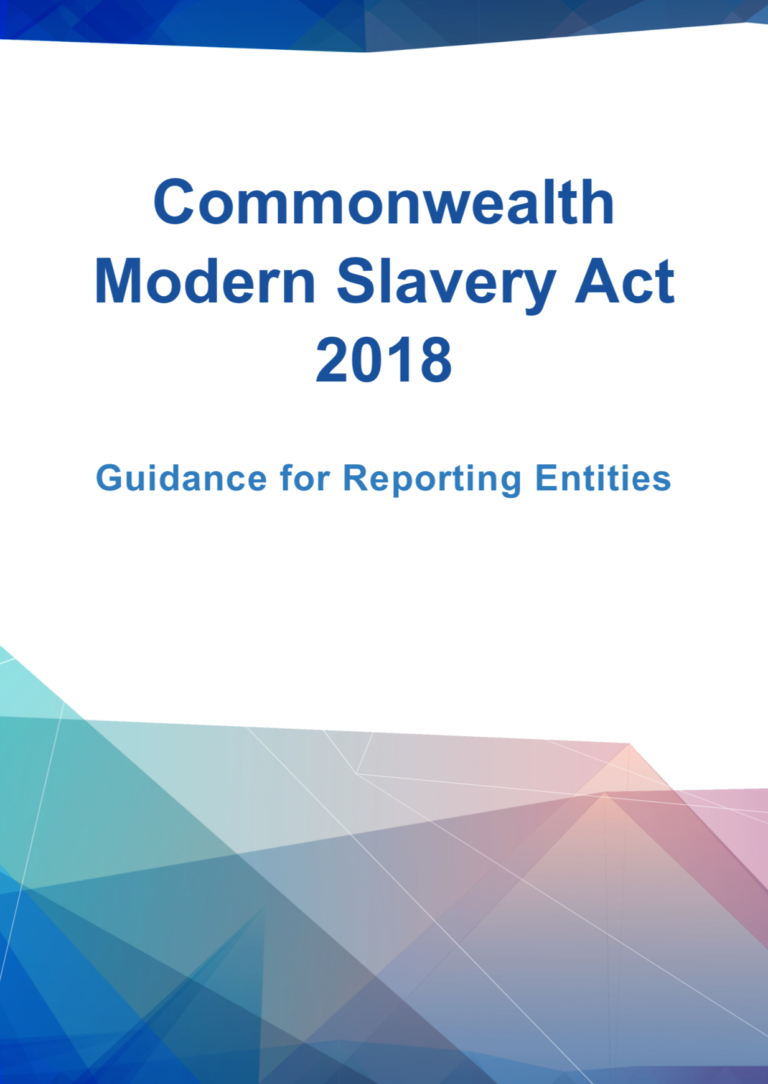The Commonwealth Modern Slavery Act 2018 established Australia’s national Modern Slavery Reporting Requirement (reporting requirement). The aim of this Guide is to explain in plain language what entities need to do to comply with the Act.
Under the reporting requirement, certain large entities must publish annual Modern Slavery Statements (statements) describing their actions to assess and address modern slavery risks. The reporting requirement applies to commercial and not for profit entities with annual consolidated revenue of at least AU$100 million.
The main audience for this Guide is people that need to prepare a statement for their entity. You can also read this Guide if you do not have to report but want to learn more about the reporting requirement or provide a voluntary statement.
Each chapter of this Guide will help you to understand a specific part of the reporting requirement. These chapters clearly identify what you need to do to comply with the reporting requirement. You should carefully follow these instructions

